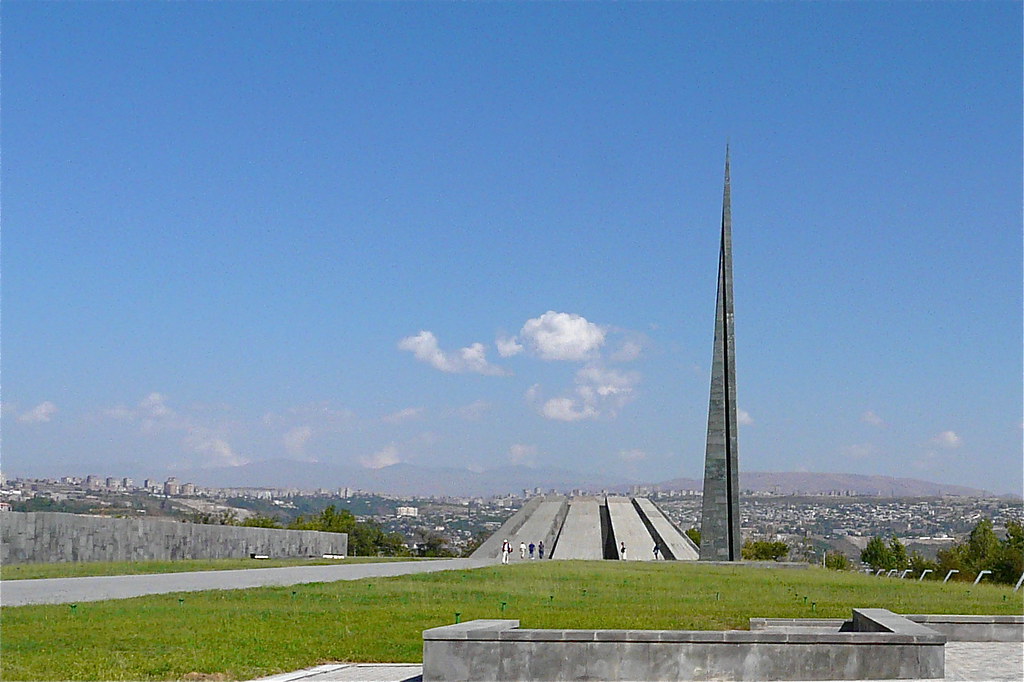Something big happened in Germany this week.
Its parliament voted to formally recognize the Armenian Holocaust as a genocide.
Germany, not my native United States, but Germany, who fought alongside the Ottoman Empire and the Austro-Hungarian Empire against the Allies of World War I, when the Armenian Holocaust was perpetrated. Germany, who has its own monstrous genocide--*the* monstrous genocide of all genocides--in its own history.
But I think that history had a lot to do with today's vote. Germany knows what acknowledgement means and looks like. It has spent decades expressing remorse for the Jewish Holocaust, and a part of genocide's intersectionality is recognizing it when it has happened to other peoples--the Armenians, the Tutsis in Rwanda, the ethnic minorities in Cambodia under Pol Pot, and so on.
It would be tempting for many to heap criticism upon Germany for its vote--the country has a large Turkish minority, for instance, many of whom remain adamantly opposed to any form of recognition of the Armenian Holocaust (opposition that has been expressed in part by Turkey recalling its ambassador to Germany, among other measures). And Turkey is, of course, a key NATO ally for Germany--and the United States for that matter.
Yet it is because of the moral authority--for lack of a better term--of having had to recognize your own genocidal past that I think makes Germany's recognition so unique, so newsworthy, and so meaningful.
This is a country whose one-time chancellor very famously and spontaneously knelt before the memorial to the victims of the Warsaw Ghetto from the Second World War.
That chancellor, Willy Brandt, was himself an opponent of Nazism; in fact, his name began as a pseudonym he used to protect himself from Nazi agents.
But his opposition to Nazism, for the purposes of expressing the remorse and penance of an entire nation, an entire people, mattered little. He was the chancellor, it was upon him to incarnate that remorse.
Similarly, the German parliament, like any representative governmental body, is precisely that--representative. It was up to them to represent the voice of truth in Germany, and in this vote, they did so.
We so, so revere our individualism here in America, and yet we so easily see an entire people elsewhere as a monolith, a collective, and often a foreboding one at that (just look at the popularity of Donald Trump's incendiary ban-the-Muslim-immigrants proposal).
But within a people, there are persons, not just bogeymen. People with beating hearts and living souls, not simply cardboard cutouts or cartoonish caricatures. It is why Yad Vashem has a list of the Righteous Among the Nations--the Gentiles who are recognized for their selfless and self-sacrificing work in saving Jews during the Jewish Holocaust.
At Bendlerblock, in the heart of Berlin, there is a memorial to the German officers who, though not Righteous Among the Nations, still gave their lives after a failed plot to assassinate Adolf Hitler and depose the Nazi government. Translated into English, the memorial reads:
You did not bear the shame
You resisted
You bestowed the eternally vigilant symbol of change
By sacrificing your lives for freedom, justice, and honor
You did not bear the shame.
And yet, they still did feel the shame--one of the civilian members of the plot, Carl Goerdeler, wrote prior to his own execution, "I ask the world to accept our martyrdom as penance for the German people."
We cannot excise the guilt within ourselves for our people, not entirely, no matter how much we try. I may abhor Donald Trump--and I do--but I still feel a profound shame that he is now the presidential nominee of a major party in my country.
And because Germany could not, and did not, try to wipe away their collective guilt over the Jewish Holocaust, even as individual Germans were sometimes heroic in their efforts to save the Jewish people, it adds a layer of meaning for them to say, "We too recognize this as a genocide."
Turkey has not yet taken that step, but someday, they must. Because Armenians...we are not the bogeymen they would make us out to be, then or now.
One of the German politicians who pressed for this recognition of the Armenian Holocaust, Cem Ozdemir, is himself ethnically Turkish. And he made a point of pressing us to remember those among the Turkish people, like those among the German people, who valiantly worked to save the lives of their Armenian neighbors.
The goodness of the individuals, the goodness of an Ozdemir or a Brandt, does not erase the need for recognition. It redoubles it. Because in knowing their stories, and the stories of the Jews or the Armenians who died, who escaped, who were tortured, who were exiled...in all of them, you see how the world can change, for both ill and for better.
Which direction that change tacks to, believe it or not, remains up to us.
Germany's choice for recognition reminds us of that. They did what was right, not what was easy or convenient.
Imagine what the kingdom might look like tomorrow if that were true of us all.
Let us begin to do so, then, with purpose and with truth.
Vancouver, Washington
June 4, 2016
Image of the Armenian Genocide Memorial in Yerevan, Armenia, courtesy of Flickr

Eloquent call to us all.
ReplyDelete